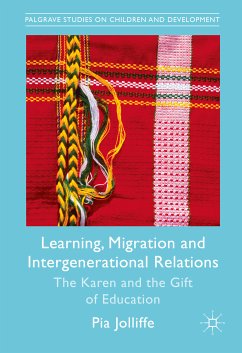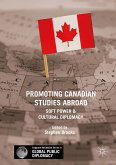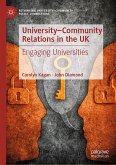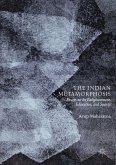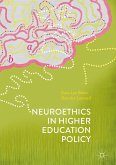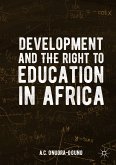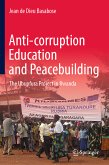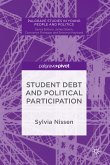Dieser Download kann aus rechtlichen Gründen nur mit Rechnungsadresse in A, B, BG, CY, CZ, D, DK, EW, E, FIN, F, GR, HR, H, IRL, I, LT, L, LR, M, NL, PL, P, R, S, SLO, SK ausgeliefert werden.
"This book contributes to the literature on the Karen, in particular their education, schooling and migration. It provides rich descriptions of young people's schooling experiences, their aspirations and their trajectories. ... This book fills a gap in studies on the Karen and provides us with a better understanding of the learning and migration experiences and aspirations of Thai Karen and of Myanmar Karen who live or have lived in refugee camps." (Su-Ann ho, SOJOURN: Journal of Social Issues in Southeast Asia, Vol. 33 (1), March, 2018)
"Learning, Migration and Intergenerational Relations offers a new insight into a particular ethnic group's engagement with education. ... Joliffe's Learning, Migration andIntergenerational Relations should have appeal to a wide audience. The author's ability to combine academic and narrative genres provides relevance to readers across many interest areas, including but not limited to, Southeast Asian, ethnic and/or cultural studies, education, social justice, development, religious-based programmes and inter-generational relations." (Shirley Worland, Journal of Contemporary Asia, Vol. 47 (3), March, 2017)

